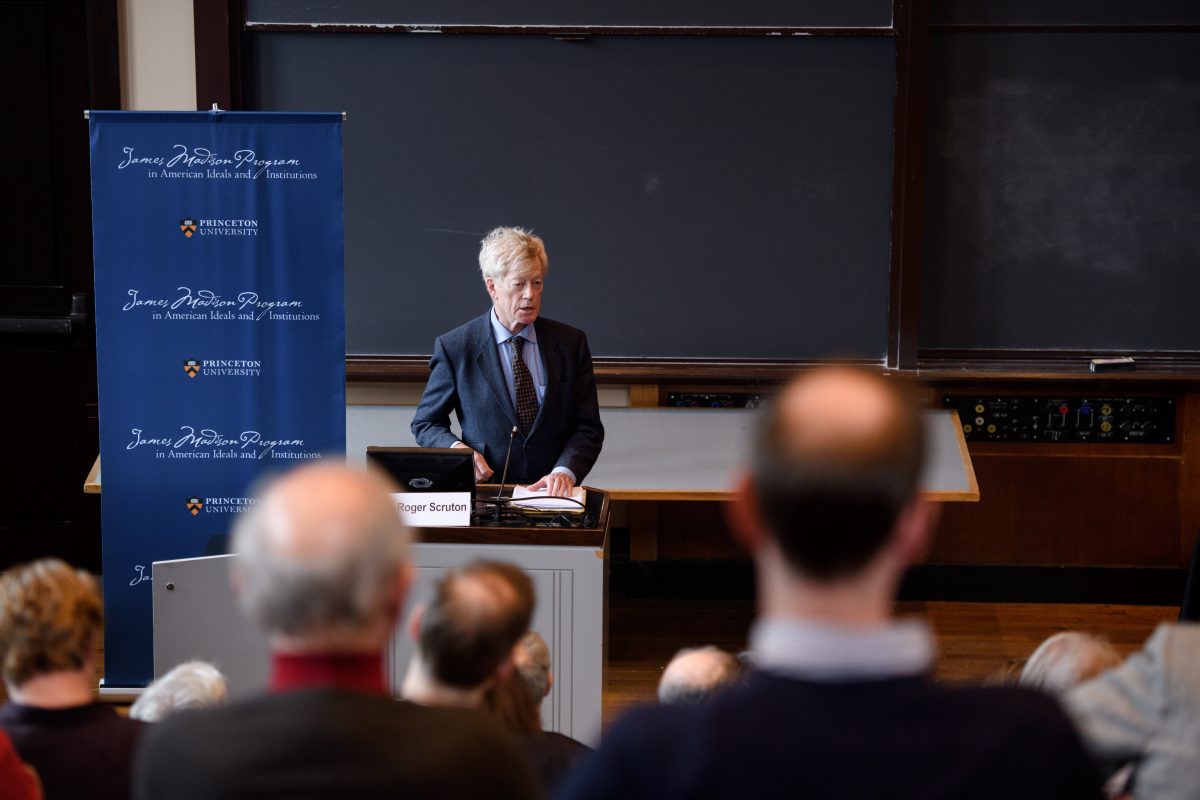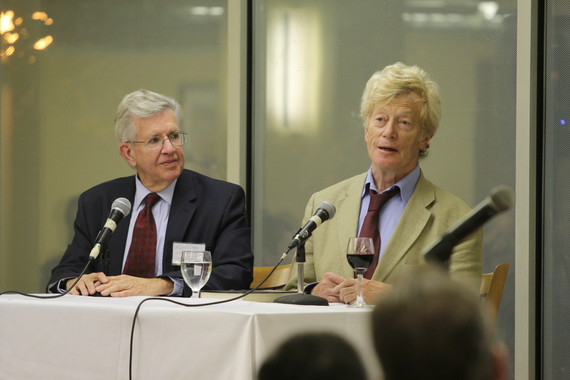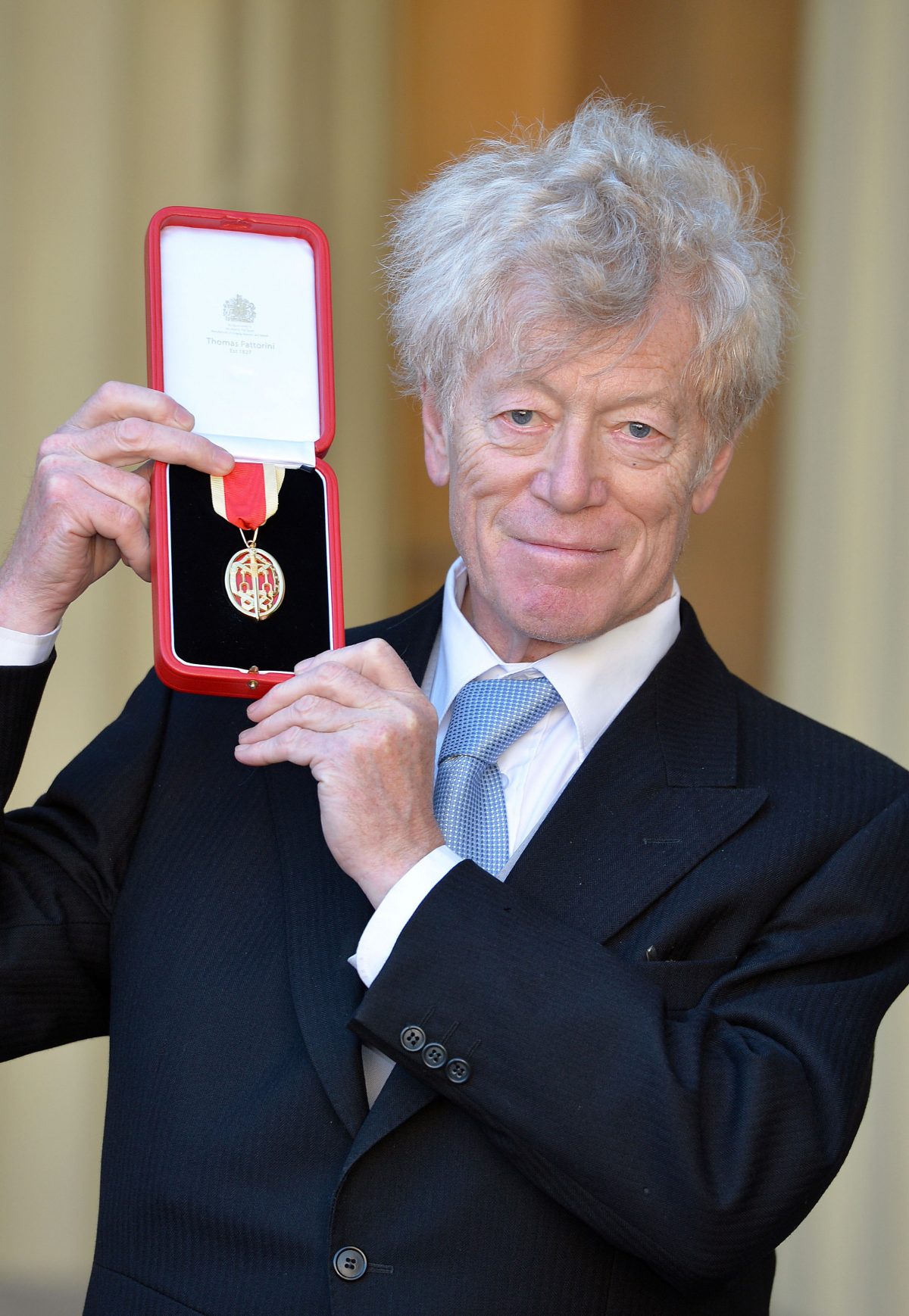
“When an old person dies, a library burns to the ground.” That proverb, purportedly from Africa, contains a great deal of truth.
Men and women who have lived 70, 80, and 90 years are repositories of wisdom and experience. They have seen things that we have only read about in books of history. In their personal lives, they have experienced what one television sports show called “the thrill of victory and the agony of defeat.” They have known great joy and deep sorrow. Were we to ask them, we would surely find among these elders memories of people and events from the past that might remind us of who and what we are.
In the case of Sir Roger Scruton, who died from cancer on Jan. 12, that adage hits home. With his passing, a library has indeed burned to the ground.
His Gifts to the Rest of Us
Scruton (1944–2020) was a philosopher, a student of the arts and music, a teacher, a commentator on culture on such social media as YouTube, a farmer, a lover of horses and the English countryside, a proponent for beauty in everything from literature to architecture, a member of the Church of England, a fellow of the Royal Society of Literature and of the British Academy, an accomplished musician who wrote two operas, and the author of more than 40 books on art, aesthetics, politics, and culture. Of all his achievements, he was particularly proud of having helped create an underground university in Czechoslovakia when that country was still under a communist regime.
He was also a traditionalist and a conservative.
His Books and Articles
In April 2017, Milene Fernandez wrote here at The Epoch Times of Scruton’s importance, in her article “Celebrating the Philosopher of Beauty.” In her opening lines regarding honors bestowed on Scruton by Princeton University, Fernandez wrote: “If you care about beauty in art, music, and architecture; if you are looking for consolation in the world; if you want to learn about human nature, sexuality, and desire; if you want to understand why tradition matters; or if you simply want to know how to better nurture friendships, perhaps you would enjoy works by Sir Roger Scruton.”

Of these many books, I have read only three: “The Soul of the World,” which is “an extended reflection on why a sense of the sacred is essential to human life”; a novel, “The Disappeared,” which I reviewed in the Smoky Mountain News in 2015; and “How to Be a Conservative,” in which Scruton tells us how to live as conservatives in an age antagonistic to tradition. I read his articles when I found them online, visited his website, and listened to his lectures—he had a captivating voice—especially this hour-long version of “Why Beauty Matters.”

Conservatism and Aesthetics
Scruton turned toward conservatism as a political and cultural philosophy after witnessing the rhetoric and the events of the 1968 student riots in Paris. Like Roger Scruton, like many others my age (I, too, grew up in the 1960s), and having witnessed various leftist protests in the United States, I gave up whatever liberal proclivities I had picked up in college and stepped across the line in the sand.
In addition to his books on conservative thinking, Scruton was perhaps best known for his study of aesthetics. He stressed in particular the sacred aspect of all true art. Sharon Kilarski of The Epoch Times, who reported on Scruton’s address to a conference of the Catholic Art Guild, summed up Scruton’s remarks by writing that when we see a beautiful painting like Botticelli’s “Birth of Venus,” we “experience not only idealized beauty, but something beyond it.” That “something” is the feeling we are “in communion with someone whom we cannot reach.”
Last Thoughts and Gratitude

In an article found on his website, “Roger Scruton: A year in which much was lost—but more gained,” Scruton describes the attacks by liberals on him in his position as the chair of the government’s Building Better, Building Beautiful Commission; the false accusations that he is a white supremacist; the demands by some in Parliament that he “be stripped of [his] knighthood in the light of [his] ‘Islamaphobic, anti-Semitic, and homophobic comments’”; and his brief mention of the cancer that would kill him. He seems a beaten man, and yet his paragraph for the month of December, just weeks before his death, honors his courage and his wisdom:
“During this year much was taken from me—my reputation, my standing as a public intellectual, my position in the Conservative movement, my peace of mind, my health. But much more was given back: by Douglas Murray’s generous defence, by the friends who rallied behind him, by the rheumatologist who saved my life and by the doctor to whose care I am now entrusted. Falling to the bottom in my own country, I have been raised to the top elsewhere, and looking back over the sequence of events I can only be glad that I have lived long enough to see this happen. Coming close to death you begin to know what life means, and what it means is gratitude.”
What life means is gratitude. Here was a man of great heart and grace, a philosopher who could speak to both academics and the rest of us, a thinker who died a brave man to the end.
Influences and Farewell
At one point in this article on his website, after describing how he was assailed and belittled on all sides by enemies, Roger Scruton asks, “Do I belong here?”
Yes, Mr. Scruton. You belonged here—not just in Britain, but on the side of all who value virtue and reason, and love beauty. You more than belonged. You showed many of us how to appreciate and embrace true beauty, and you gave us the courage to lift high the banners of conservative values. You are gone, but you have left us your books, your articles, your speeches, and interviews, and from these we shall draw wisdom and strength. You were a gentleman of the old school, a defender of civilization, and you will be sorely missed, but by your example we will continue the good fight.
Requiescat in pace, Sir Roger.
Jeff Minick has four children and a growing platoon of grandchildren. For 20 years, he taught history, literature, and Latin to seminars of homeschooling students in Asheville, N.C., Today, he lives and writes in Front Royal, Va. See JeffMinick.com to follow his blog.
Contributed by Jeff Minick

Great blog I ennjoyed reading